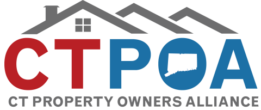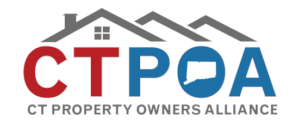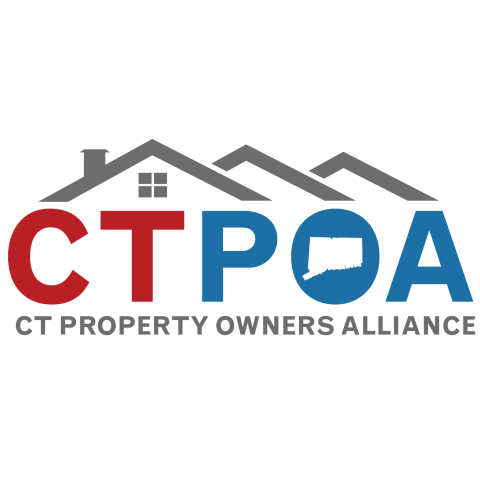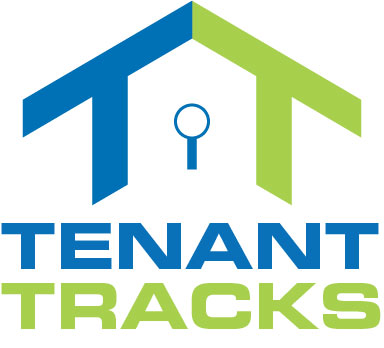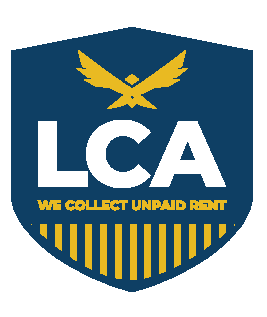As a landlord in the vibrant Connecticut real estate market, you’re juggling a lot. From finding great tenants to handling day-to-day operations, your time is a valuable commodity. But what if there were costs silently eroding your profits—expenses that don’t show up on a monthly bill or a glaring repair invoice? These are the hidden costs of property ownership, and they can be the difference between a thriving portfolio and one that’s just treading water.
At the Connecticut Property Owners Alliance (CTPOA), we are dedicated to helping our members navigate the complexities of property ownership in our state. By identifying and proactively managing these five often-overlooked expenses, you can safeguard your investment, increase your cash flow, and build a more resilient and profitable business.
1. The Cost of Deferred Maintenance: An Ounce of Prevention is Worth a Pound of Cure
In the world of rental properties, a common mistake is to only address problems when they become emergencies. A leaky faucet isn’t just an annoyance; it’s a potential harbinger of mold, water damage, and a tenant’s right to withhold rent if it impacts the unit’s habitability. In Connecticut, landlords have a legal obligation to keep their properties in a safe and livable condition. Ignoring small issues can quickly turn into a major and expensive repair job.
How it Accrues:
- Small problem becomes a big problem: A minor roof leak, if ignored, can lead to widespread structural damage, requiring a full replacement instead of a simple patch.
- Emergency service fees: When something breaks on a Saturday night, you’re not calling your regular handyman. You’re calling an emergency service, which comes with a premium price tag.
- Tenant turnover: A frustrated tenant who feels their maintenance requests are being ignored is more likely to leave, leading to vacancy costs and the expenses of finding a new renter.
CTPOA’s Proactive Approach:
- Seasonal Inspections: Conduct a thorough inspection of your properties at least twice a year. Check for things like leaky pipes, clogged gutters, faulty smoke detectors, and wear and tear on appliances.
- Preventative Maintenance Schedule: Create a calendar for routine tasks, such as cleaning gutters, servicing the HVAC system, and testing CO2 detectors.
- Budgeting: Allocate a specific portion of your rental income each month into a maintenance reserve fund. A good rule of thumb is to set aside 1-2% of the property’s value annually for maintenance and repairs.
2. The High Price of Inadequate Insurance Coverage
You have landlord insurance, so you’re covered, right? Not necessarily. The Connecticut insurance market has seen significant changes, with premiums rising sharply. While standard landlord insurance covers the structure of your building and your liability as a property owner, there are crucial gaps that can leave you exposed to financial ruin.
How it Accrues:
- Gaps in Coverage: Many standard policies don’t cover specific risks common in Connecticut, such as damage from floods or sewer backups. Without a separate flood policy, a single storm could wipe out your investment.
- Loss of Rent: What if a fire or major flood makes your property uninhabitable for months? Loss of rent coverage, often an add-on, is what keeps your income stream flowing while repairs are being made. Without it, you’re still on the hook for the mortgage, property taxes, and other expenses with no revenue.
- High Premiums from a Lack of Specialization: Many landlords use agents who specialize in homeowner policies, not rental properties. This can lead to paying more for less coverage.
CTPOA’s Proactive Approach:
- Review and Update: Don’t just set it and forget it. Review your policy annually with a specialized landlord insurance agent. Ensure your coverage limits are up-to-date with your property’s current value.
- Consider “Loss of Rent” Coverage: This is a vital protection that can save your business in the event of a catastrophic event.
- Encourage Renter’s Insurance: While you’re not responsible for your tenant’s belongings, their property can get damaged. Encouraging or even requiring renters to carry their own insurance protects you from a tenant seeking compensation from you for their losses.
3. The Unseen Tax Liabilities: Navigating Connecticut’s Complex System
Property taxes are an obvious expense, but they aren’t the only tax-related cost to consider. In Connecticut, a landlord’s tax obligations are a multi-faceted issue that extends beyond the annual city or town bill.
How it Accrues:
- Estimated Tax Penalties: For many landlords, especially those with multiple properties, your rental income may be subject to estimated tax payments throughout the year. Failure to make these payments on time can result in penalties from both the federal government and the Connecticut Department of Revenue Services.
- Missed Deductions: You’re leaving money on the table if you’re not meticulously tracking every deductible expense. This includes mortgage interest, property taxes, insurance premiums, maintenance costs, and even the mileage you log for property-related tasks.
- Incorrect Record-Keeping: A lack of organized records for income and expenses can be disastrous during a tax audit. In Connecticut, you’re required to keep records for at least three years after filing.
CTPOA’s Proactive Approach:
- Professional Guidance: Consult with a CPA or tax professional who specializes in real estate. They can help you structure your business to maximize deductions and ensure you are meeting all state and federal requirements.
- Digital Record-Keeping: Use software or a separate bank account for each property to streamline the tracking of income and expenses. This makes tax time far less of a headache.
- Understand Depreciation: This is one of the most powerful tax deductions for landlords. Depreciation allows you to deduct the cost of your building over a period of 27.5 years. Make sure your tax professional is correctly calculating and applying this deduction.
4. The Financial Fallout of a Prolonged Vacancy
When a unit sits empty, it’s not just a lack of income; it’s a silent drain on your finances. A prolonged vacancy can cost you thousands of dollars, and it’s a cost that many landlords underestimate.
How it Accrues:
- Ongoing Expenses: Even when a unit is empty, you’re still paying for property taxes, insurance, utilities, and mortgage payments.
- Missed Opportunities: Every day a unit is vacant is a day you’re not generating income.
- Turnover Costs: The period between tenants comes with its own set of expenses, including cleaning, painting, minor repairs, and advertising the unit.
CTPOA’s Proactive Approach:
- Minimize Turnaround Time: Don’t wait until a tenant moves out to start preparing the unit. Have a plan in place for cleaning and repairs as soon as you receive notice.
- Effective Marketing: Utilize high-quality photos, detailed descriptions, and online listing platforms to attract a large pool of qualified applicants quickly.
- Competitive Pricing: Research the local market to ensure your rental price is competitive. While it’s tempting to push for the highest possible rent, a slightly lower price that gets a quality tenant in the door quickly is often more profitable in the long run.
5. The Administrative Burden and Legal Exposure
As a Connecticut landlord, you are bound by a host of state-specific laws and regulations, from handling security deposits to eviction procedures. The time and resources spent on administrative tasks and the potential legal fees from non-compliance are significant, yet often go unnoticed until it’s too late.
How it Accrues:
- Time is Money: The time you spend screening tenants, handling paperwork, and managing the property yourself is a cost. It’s time you could be spending on growing your business or with your family.
- Security Deposit Mismanagement: Connecticut law is very specific about how security deposits must be handled.Failing to place a deposit in an escrow account, not providing the tenant with the proper notice, or failing to return it in a timely manner can result in the landlord being liable for double the deposit amount.
- Illegal Evictions: Attempting a “self-help” eviction by changing the locks or shutting off utilities is illegal in Connecticut and can lead to costly lawsuits and fines.
CTPOA’s Proactive Approach:
- Join the CTPOA: This is perhaps the single most effective way to protect yourself. The CTPOA provides its members with invaluable resources, including legal counsel, up-to-date information on state laws, and networking opportunities with other experienced landlords.
- Standardized Procedures: Create a standardized process for everything from tenant screening to move-out inspections. This ensures consistency and legal compliance.
- Seek Legal Advice: Don’t wait for a problem to become a crisis. Consult with an attorney specializing in Connecticut landlord-tenant law to review your lease agreements and ensure your practices are legally sound.
Conclusion
Managing a rental property in Connecticut is a rewarding venture, but it requires a keen eye on both the obvious and the hidden costs. By focusing on proactive maintenance, securing adequate insurance, navigating the tax landscape effectively, minimizing vacancies, and staying compliant with state laws, you can turn these potential liabilities into long-term assets.
The Connecticut Property Owners Alliance is here to support you every step of the way. Our mission is to empower property owners with the knowledge and tools they need to succeed. Don’t let these hidden costs chip away at your hard-earned profits. Join CTPOA today and build a more secure and prosperous real estate future.
